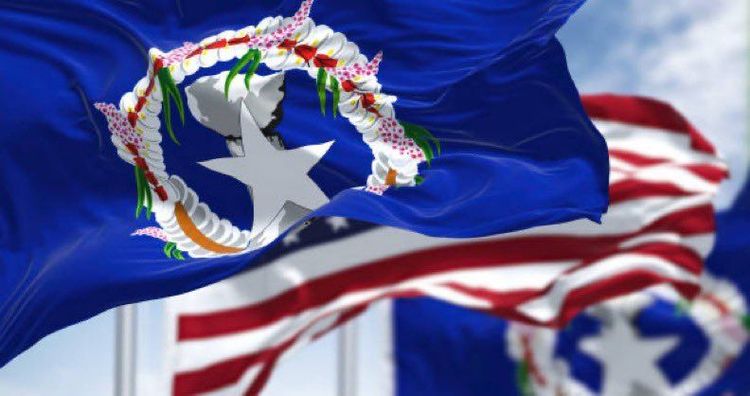While Capitol Hill spins its wheels and crypto regulation bills gather dust, a tiny US territory in the Pacific may be on the verge of making stablecoin history. Welcome to Tinian — a remote island of about 2,000 residents in the Northern Mariana Islands — that is now closer than ever to launching the first government-issued stablecoin on US soil.
Yes, you read that right.
On May 9, the Senate of the Northern Mariana Islands voted 7–1 to override Governor Arnold Palacios’ veto of a stablecoin bill. If the territory’s 20-member House follows suit with a two-thirds majority, the legislation will become law, greenlighting the issuance of a USD-backed stablecoin named the Marianas US Dollar (MUSD).
And this isn’t some half-baked plan with vague ideas. The infrastructure, issuers, reserve assets, and use cases are all clearly laid out.
If passed, Tinian could leapfrog over better-known jurisdictions like Wyoming, which has long been championing itself as a crypto-friendly haven and is also racing to launch a state-backed digital currency.
What’s in the Bill?
At the heart of this legislation is a dual-purpose proposal: economic revitalization through online gaming and digital currency infrastructure.
- Online Casino Licensing: The bill empowers the local government of Tinian to issue internet-only casino licenses.
- Stablecoin Framework: It allows the Tinian treasurer to issue, manage, and redeem the Tinian Stable Token (MUSD): a fully-backed stablecoin pegged to the US dollar.
The bill was introduced in February by Senator Jude Hofschneider, with strong support from fellow Republican Senator Karl King-Nabors. The token would be backed by cash and US Treasury bills, held in reserve by the Tinian Municipal Treasury. Infrastructure for issuance and redemption will be provided exclusively by Marianas Rai Corporation, a tech firm headquartered in Saipan, the capital of the Northern Mariana Islands.
Notably, MUSD is being built on the eCash blockchain, a fork of Bitcoin Cash ABC selected for its low fees, speed, and suitability for scalable token issuance.
A Tale of Two Senators
The Senate vote highlighted a divide between pragmatism and caution.
Governor Palacios vetoed the bill in April, citing constitutional and jurisdictional concerns. He warned that the regulation of internet gambling and financial instruments might fall under federal purview, raising the risk of legal conflicts.
Senator Celina Babauta, the only Senate member to oppose overriding the veto, echoed these concerns. She argued that the territory lacked the manpower, regulatory resources, and federal clarity to enforce such an ambitious framework, especially if linked to online gambling.
But for King-Nabors and the bill’s supporters, this is exactly the kind of bold innovation needed. Tinian’s economy, devastated by the collapse of tourism during the pandemic, is desperate for new revenue sources.
“This legislation stands at a time where we’re going through so much economic hardship,” King-Nabors said. “We need solutions that don’t require brick-and-mortar, don’t harm the environment, and bring revenue into our economy.”
He added that the use of blockchain technology ensures more transparency in online gambling oversight than traditional payment rails could offer. “This stablecoin is tracked through software… it allows for more transparency when it comes to the Tinian Casino Gaming Control Commission.”
The Broader Context: A Vacuum in Federal Regulation
What makes Tinian’s move even more remarkable is the regulatory paralysis at the federal level. Multiple stablecoin bills introduced in Congress, such as the GENIUS Act and the STABLE Act, have stalled due to political divisions. Most notably, support from Senate Democrats has waned amid concerns over former President Trump’s involvement in crypto ventures and efforts to politicize Web3 regulation.
The result? States and territories are filling the vacuum — experimenting with their crypto regulatory frameworks while Washington dithers.
But Tinian isn’t just improvising. It’s drawing from a playbook of careful reserve backing (USD and Treasuries), a clear use case (online casinos), and a technical partner ready to deploy (Mariana’s Rai Corporation). Vin Armani, CTO of Marianas Rai, said his team is “poised to act quickly” and is already in talks with strategic partners.
If successful, this wouldn’t just be a win for Tinian. It would be a blueprint for other small jurisdictions, territories, special economic zones, and even tribal governments looking to use blockchain as a lever for economic autonomy.
Why This Matters
This is more than a quirky island tale. It represents a new chapter in how decentralized financial systems are taking root through local governance, not national mandates.
Most stablecoin discourse focuses on federal regulation, institutional adoption, and high-profile issuers like Circle or PayPal. But here’s an alternate path: community-led, government-sanctioned, and transparently managed stablecoins, rooted in the economic needs of the issuing jurisdiction.
And it’s happening in the least expected place, 2,000 miles from the US mainland, on an island few in the crypto community have heard of.
What Comes Next?
The spotlight now shifts to the Northern Mariana Islands House of Representatives, where the bill awaits one final override vote. A two-thirds majority is required to bypass the governor and make the legislation law.
If it passes, Tinian will have done what many bigger, richer, and more politically influential jurisdictions have failed to do: launch a legally compliant, fully-backed, government-issued stablecoin on American territory, with a functional use case.
At a time when crypto policy is often reduced to culture war talking points and campaign slogans, this small island has chosen action over rhetoric.
And the rest of the country, indeed, the entire crypto world, should be paying attention.
Editor’s Note: As of June 2025, the legislation authorizing the Marianas US Dollar (MUSD) has officially been passed and enacted. The stablecoin is now approved and launched, marking a historic first for a U.S. jurisdiction. The article above provides the full backstory leading up to this milestone.
➡️ https://x.com/eCash/status/1924305179806994624
Originally Published: https://medium.com/@ukachibenita/the-island-that-could-issue-americas-first-stablecoin-cecae4766046



